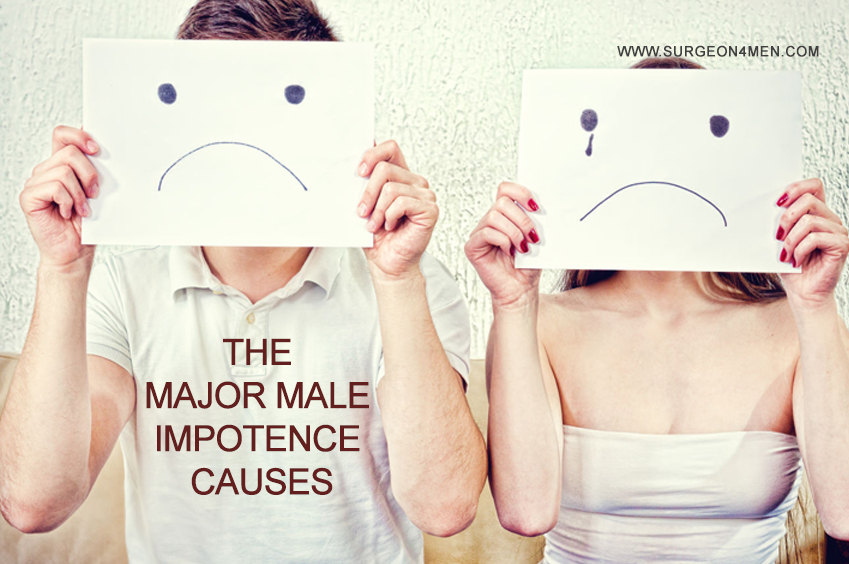The Major Male Impotence Causes
Impotence, also referred to as erectile dysfunction (ED) can be defined as the incapability of a man to achieve and maintain an erection. It can be extremely embarrassing for men. However, it is a very common condition and it is estimated that about half of the men between the age of 40 and 70 suffer from this medical condition. It is advisable to visit a doctor if you observe that you have erectile dysfunction for more than a few weeks.
When a man is sexually aroused, his brain sends signals to the nerves in his penis to increase the blood flow through the penis, thereby, making it expand and hardening it. However, if there is any form of interference with the blood circulation or the nervous system, it could lead to erectile dysfunction. Anything that interferes with the sexual arousal of a man can also cause impotence.
Causes of Male Impotence
Some of the major causes of male impotence are listed below:
- Physical causes: There are four basic health conditions that can cause physical problems which can lead to male impotence. These are:Vasculogenic conditions: There are numerous conditions that can affect the flow of blood to the penis. These medical conditions include cardiovascular disease, high blood pressure, and diabetes. Diabetes often leads to nerve damage which can affect penis sensations.
- Neurogenic conditions: Conditions affecting the central nervous system can also cause erectile dysfunction. Examples of these neurogenic conditions include multiple sclerosis, stroke, and Parkinson’s disease.
- Hormonal conditions: Various medical conditions can have an impact on your hormonal levels, thereby resulting in erectile dysfunction. Typical examples of these hormonal conditions include hypogonadism, hyperthyroidism, hypothyroidism, and Cushing’s syndrome.
- Anatomical conditions: Penis injuries and different forms of penis surgical treatment can also cause male impotence. Peyronie’s disease that affects the penile tissue can also cause impotence.

- Medicinal causes: The medicines prescribed for specific medical conditions can also cause erectile dysfunction. Some of the medicines that are associated with male impotence include:Diuretics prescribed for treating high blood pressure, heart failure, and kidney disease
- Antihypertensives which are prescribed for treating high blood pressure
- Fibrates which are used for lowering cholesterol
- Antipsychotics which are given for treating mental health conditions
- Antidepressants
- Corticosteroids
- Anti-histamines
- Psychological causes: Various psychological causes can also lead to erectile dysfunction. Depression and anxiety are often linked to erectile dysfunction. Male impotence can also be caused by emotional problems such as relationship issues, depression, inadequate sexual knowledge, prior history of sexual abuse, and being in a new relationship. Performance anxiety can also cause impotence. A man who has not been able to achieve an erection in the past may fear that he might not be able to achieve erection in the future too.
Drug abuse and excessive use of recreational drugs such as cocaine and amphetamines can cause impotence. Alcoholism and alcohol abuse can also affect a man’s capability of achieving an erection. Excessive cycling can also cause erectile dysfunction. Men who cycle for more than three hours per week might experience impotence. Common risk factors for male impotence are obesity, lack of physical activity, high cholesterol, and smoking.
References
- “Causes of sexual dysfunction: The role of anxiety and cognitive interference.” by David H, et all. Published in Volume 54 (2), April 1986 edition of Journal of Consulting and Clinical Psychology, accessed on 20 July 2015. Retrieved from: http://dx.doi.org/10.1037/0022-006X.54.2.140

